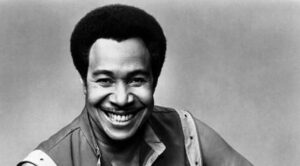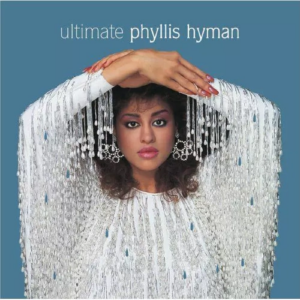Mutatis Mutandis is like a gallery. It houses all of the hats Nona Hendryx wears: artist, songwriter, musician, producer, band leader, iconic funk rocker. Vibrant, bold colors paint the walls. Progressive ideas inform each piece. Most importantly, the work on exhibit prompts bystanders to enjoy themselves and think. Though Nona rocks out, she’s also dropping some intelligence.
Album opener “Tea Party” best exemplifies that kind of musical/lyrical interplay. Words are Nona’s weapons against ignorance and prejudice while the track’s rhythm amplifies her clever couplets. Over a groove that could stir James Brown back to life, Hendryx itemizes everything the Tea Party represents. “They say they want to take their country back, but don’t they know it wasn’t theirs and that’s a fact,” she sings. In the album’s liner notes, Hendryx explains how the tenets of the Tea Party fueled her first new solo album in more than 20 years: “I did what my heart, soul, political, socially and responsible creative spirit knows how to do: write music to soothe the savage beast and then share it with others to exorcise the frustration and to not feel powerless.”
Mutatis Mutandis — a Latin expression that Hendryx translates as “names and faces will change, but things remain the same” — succeeds in usurping the power from culturally destructive forces. “The Ballad of Rush Limbaugh” is not just an indictment of the talk radio host but a treatise against hypocrisy and hate-mongering. “Oil on the Water” takes aim at multi-national oil conglomerates as Hendryx sets “desire and greed” aflame in her lyrics: “If we keep burning each bridge that we cross, we’re going to wake up one day and find our paradise lost.” The jazz-infused “Mad As Hell, Pt. 1” magnifies the enormous disparity between the 1% and those who live outside economic privilege. Hendryx tells the stories of men and women whose hand-to-mouth existence is fodder for journalists but rarely gets a reprieve: “My story’s all over the news but still I can’t catch no slack.”
Nona Hendryx has long been a reliable stenographer of the world around us. As far back as her work with Patti LaBelle and Sarah Dash on Labelle (1971), her songs have served as a vehicle for social observation and critique. Sprinkled throughout the trio’s landmark albums for Epic in the mid-’70s, “Somebody Somewhere,” “Slow Burn,” and “Who’s Watching the Watcher” not only doused the group’s devoted “space children” with a fierce set of grooves but raised their consciousness as well. Upon her self-titled debut in 1977, Hendryx forged ahead with a vision that intertwined innovative music with incisive lyrics, whether on club-ready cuts like “Revolutionary Dance” or her poignant dedication to Nelson Mandela on “Winds of Change.” In the decades since her last full-length solo album, SkinDiver (1989), she’s never wavered from that vision. Her collaboration with Paul Haslinger on “Higher Purpose” for the Sleeper Cell soundtrack (2005), her compositions for the Labelle reunion album Back to Now (2008), and her contributions to the film Precious (2009) all stemmed from her keen insight about the human condition.
Like Nona’s best work, the songs on Mutatis Mutandis grip with melody and rhythm, and then edify listeners through the singer’s ardent delivery. Anyone who’s seen Hendryx in concert over the past couple of years will instantly recognize the chugging beat of “Let’s Give Love a Try,” a staple of her live set. “Black Boys” is notable not only for Nona’s compassionate lyrics but Ronny Drayton’s incendiary guitar. “When Love Goes to War” presents a sobering view of religion-engendered violence but also forecasts that love will prevail. “With hate blowing in the wind, who will survive,” Hendryx asks in “Black On Black,” one of the song’s many questions that must be addressed and discussed. She juxtaposes the Billie Holiday standard “Strange Fruit” with samples of Revered Dr. Martin Luther King Jr.’s “I Have a Dream” speech from the 1963 March on Washington. Her voice renders each nuance of pain and horror in the words. The effect is chilling.
Produced entirely by Hendryx, the ten tracks on Mutatis Mutandis work together thematically, but also stand on their own merit. No song is superfluous, nor has Hendryx taken any shortcuts in production. Ronny Drayton, bassist Warren McRae, drummer Trevor Gale, and keyboardist Etienne Stadwijk give much of the album its musical heart while Keyontia (Ki Ki) Hawkins and Keith Fluitt complement Nona’s lead vocals with flawless harmonies and background support. Guest players like Terri Lynne Carrington, Felicia Collins, and Jean Bouvier round out the album’s stellar musicianship.
In an era when veteran artists often rely on past glories to remain current, Hendryx has accomplished something quite remarkable: an album of new material that’s challenging yet accessible, relevant to 2012 but not frozen in time. If there’s one song that reflects the very best of what Mutatis Mutandis offers, it’s “Temple of Heaven.” Written by Hendryx with Collins and Gail Ann Dorsey, the song commands attention with each twist in the rhythm, each cry from Nona’s soul. “Have we forgotten we were born in a garden,” she sings during the bridge, arguably one of the most exquisite musical passages on the album. Try transcribing the lyrics to “Temple of Heaven” and see Nona’s genius come alive on the page. The lasting impression of Mutatis Mutandis is this: though times, names, and faces inevitably change, the brilliance of Nona Hendryx will always remain.
By Christian John Wikane









